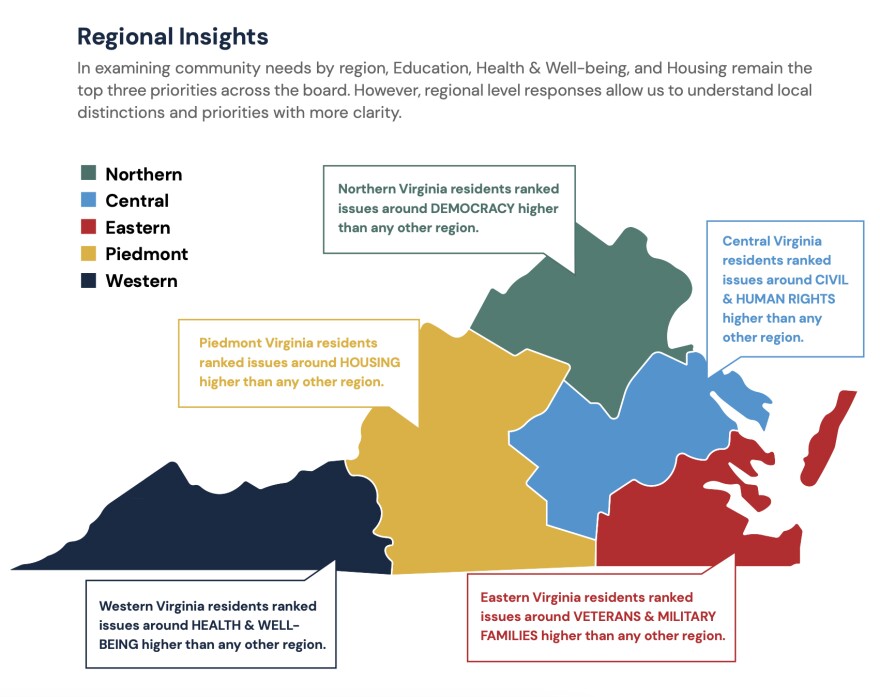A survey of civically engaged Virginians indicates they lack confidence in government and policymakers, and are particularly concerned about education, housing, and health and well-being.
The Department of Social Services released the first Virginia Community Engagement Index on Tuesday, after surveying more than 6,000 people in the state.
“We wanted to understand the Virginian perspective,” said Kathy Spangler, the director of Serve Virginia, which encourages volunteerism in the state. “This really afforded us an opportunity to better understand, coming out of the pandemic, how people were feeling about the prevailing issues in the Commonwealth. But also then how they could take action and collectively action could be taken to solve some of the biggest crises and challenges that we face.”
Data from a 2021 survey conducted by the U.S. Census Bureau and AmeriCorps found that there were 1.8 million formal volunteers in Virginia. “Volunteering and Civic Life in America” estimated their 130 million hours of service was worth $4 billion.
The topics of education, housing, and health and well-being were engaged Virginians’ top priorities across the commonwealth, according to the state survey. But regionally, there were different focuses.
Northern Virginians were more likely to be concerned with democracy issues than those elsewhere in the state, while those in Eastern Virginia ranked veterans and military families’ issues higher than the rest of the commonwealth.

The survey was instituted through Serve Virginia’s strategic plan and was funded using American Rescue Plan Act and state funds, Spangler said.
Its authors noted that nationwide civic engagement has been on the decline, but the report was examining ways to counteract the drop off.
“It really digs into the motivations of individuals — cohorts of demographics — that allows us to then expand, strengthen [and] build,” Spangler said. “The sense of contribution that an individual can make is different among different generations.”
The report noted that civically engaged Millennials and Gen Zers were more likely to volunteer in order to expand their network and gain new experiences. Gen Xers and baby boomers, meanwhile, were hoping to give back by using their experience.
The survey also said that while 68% of these engaged Virginians voted, most didn’t trust the government to “do what is right”; one-quarter said it was effective to bring issues to local government; and 21% thought bringing issues to a state government representative would be effective.
Spangler said Serve Virginia plans to conduct similar surveys every two years.
Disclosure: A member of VPM’s community engagement team was involved in the creation of this report.



